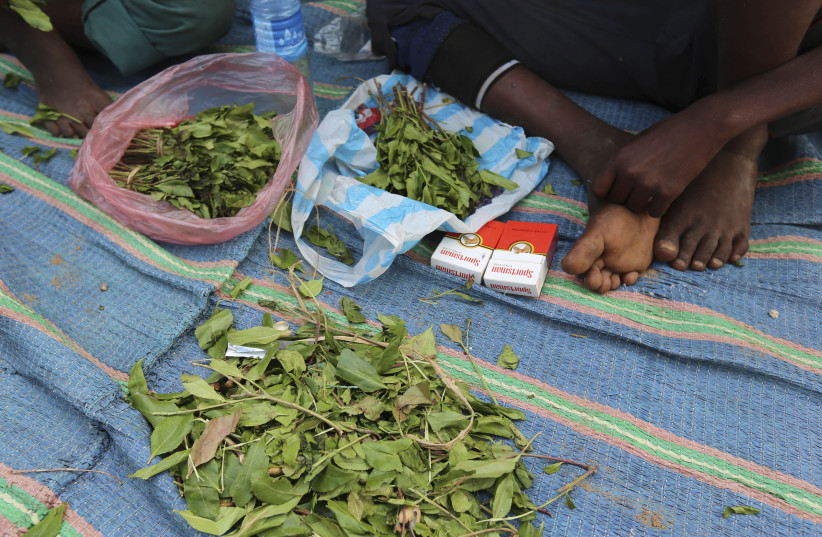The Israeli citizen who was sentenced to ten years in a Turkish prison for possession and attempted smuggling of khat is expected to be released this coming weekend, thanks largely to efforts by President Isaac Herzog and Foreign Minister Eli Cohen, it was announced on Thursday.
Danny Awka, 35, was sentenced to 10 years in prison for the possession and attempted smuggling of khat through Turkey in 2019.
Khat is illegal for personal use under Turkish law and in many European and Western nations, Awka received the most severe possible sentence for his crimes.
As part of an effort towards warmer relations, Cohen appealed to his recently-appointed Turkish counterpart, asking the Turkish government to consider Awka's special situation. While Herzog put diplomatic pressure on President Recep Tayyip Erdogan. Knesset member Pnina Tamano-Shata was also involved in securing his release, being the one to alert the President to his plight, according to Israeli media.
The joint efforts have yielded results with Awka being released after almost five years in prison, he is expected to be deported from Turkey on Saturday and arrive in the country the same day.

His family issued a statement: "We have been fighting for the release of our dear Danny for 4 years now, a too long period that will not end until the moment he lands in Israel. We ask all those involved and the media to behave responsibly in these sensitive circumstances and not rush to publish anything.
"Those who care as much as we do for Danny, would not be in a hurry to make premature statements."
Khat smuggling
Awka insists that he was "tricked" into smuggling khat as the drug in its natural form is legal in Israel, distillation of the plant into its active chemical cathinone is illegal however. Smugglers in Germany convinced Awka that khat was legal in Turkey and Europe, but both are untrue.
He was arrested in Turkey with $100 dollars in his pocket and 34 kilograms of khat in his suitcase, according to Ynet.
During his first year in prison, he was harassed by Iranian and Syrian prisoners for being Israel prompting the Foreign Ministry to intervene and request his transfer to an alternate prison, which was granted.
It was only due to a loophole in Turkish law that his release and deportation were secured.
